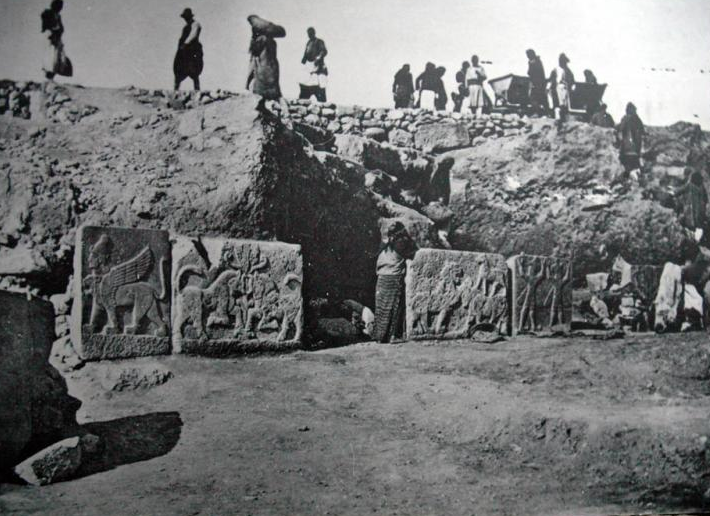2 Kings 23:29-35 The Assyrians and the Babylonians have been at war for many years. Matters come to a head when, in 612BC, the Babylonians conquer Nineveh, the capital of Assyria (see 5 on Map 60).
Nahum celebrates the destruction of Nineveh by the Babylonians in 612BC.
When Pharaoh Neco of Egypt comes to the aid of Assyria in 610BC, this leads to the death of King Josiah of Judah at the Battle of Megiddo (see 6 on Map 60).

The Vale of Jezreel, near Megiddo, where King Josiah died
The Battles of Megiddo and Carchemish
Following the defeat of the Assyrians at the hands of the Babylonians in 612BC, Ashuruballit III, the last King of Assyria, called on Egypt to support him against the rising superpower Babylon. Perhaps realising the threat of Babylon to his own kingdom, Pharaoh Neco (Necho II), the recently crowned King of Egypt, led his army along the Way of the Sea to assist the King of Assyria in a final showdown against the Babylonians.
King Josiah of Judah foolishly tried to bar the Egyptian king’s way at Megiddo and was killed at the Battle of Megiddo in 610BC. The delay resulted in Assyria being soundly defeated by the Babylonians. Pharaoh Neco returned to Egypt, deposing Josiah's son Jehoahaz en route, and installing his brother Jehoiakim (610-598BC) as a vassal king in his place, to act as a buffer against Babylon.
Following the intervention of Egyptian forces, the Babylonians were determined to get their revenge on Egypt, and in 606BC, Pharaoh Neco was defeated by King Nebuchadnezzar of Babylon at the Battle of Carchemish (KarkemiÅŸ, near Barak, on the southern border of Turkey) (see 7 on Map 60) & Jeremiah 46:2). Nothing then stood in the way of Babylon claiming all the land between the Euphrates and the Nile.

Excavations at Carchemish in 1910
